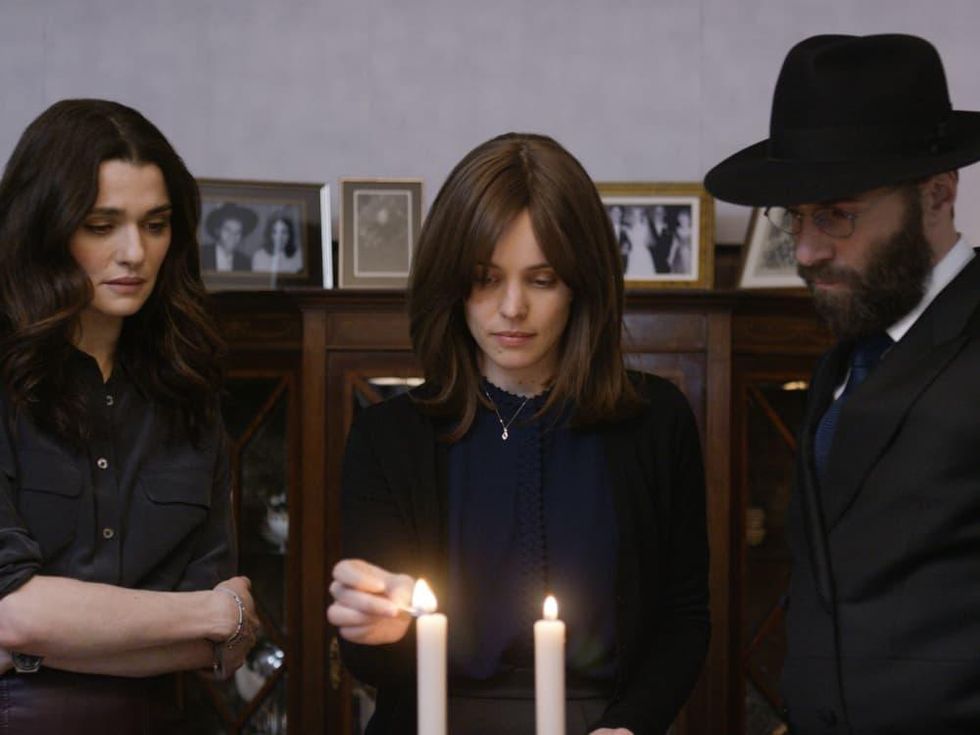Movie Review
Disobedience collides at intersection of faith and forbidden love
When religion and sexuality come up together in movies, the storyline involving their intersection is more often than not a negative one. Progressive and enlightened views don’t tend to make for very dramatic films, so the tendency is to focus on repressive religions that hold their parishioners back from exploring their true selves.
That is certainly the case with Disobedience. Ronit (Rachel Weisz) is a photographer living in New York after having been shunned by her London Orthodox Jewish congregation, led by her father, Rav Krushka (Anton Lesser). When her father dies, she comes back to London for his funeral and right back into the controversy that caused her departure: Her forbidden relationship with Esti (Rachel McAdams).
Esti is now married to Dovid Kuperman (Alessandro Nivola), a rising leader in the congregation who might take it over after Krushka’s death. Forced together by circumstance, Ronit and Esti find themselves irresistibly drawn to each other once again, with the stakes of that attraction being even higher than they were before.
The film is directed and co-written by Sebastian Lelio, whose 2017 movie, A Fantastic Woman, recently won the Oscar for Best Foreign Language Film. Lelio and co-writer Rebecca Lenkiewicz, working from the novel by Naomi Alderman, fill the film with emotions, both positive and negative. Ronit’s re-introduction into a society she despises is counterbalanced by her joy of reconnecting with the one person who has made her feel love.
It also juxtaposes the ability to love whomever you want with the strictness of Orthodox Judaism, in which women have very little power over their own destinies. Lelio emphasizes this divide on multiple occasions, perhaps hitting the audience over the head a little too hard at times.
The focus of much of the early press surrounding the film has been on a sex scene between Ronit and Esmi, and it is certainly a doozy. However, it’s less for the titillation factor than it is for how it underscores the depth of feeling between the two of them. Years of frustration and longing are released with a rush of sexual hunger, and every action they take shows how much they’ve needed each other.
Still, the film seems to be missing that certain something to make it fully connect. The conservative nature of the Orthodox Jewish community is obvious, but unless you’ve been part of that religion, it’s difficult to fully grasp its tenets. The ending of the film also leaves something to be desired, as it delivers a resolution that seems to be at odds with what had come before.
Weisz and McAdams make the film what it is, each giving a fully-realized performance that reveals everything you need to know about their respective characters. Nivola is strong as Dovid, but as the film is mostly about the women, his part is somewhat underwritten.
Disobedience makes no bones about where it stands on the oft-contentious relationship between religion and sexuality. The journey Ronit and Esmi take toward freedom is full of pitfalls, but it’s ultimately a rewarding one.
---
Disobedience screens seven times, June 22-24, as part of the Magnolia at the Modern series at the Modern Art Museum of Fort Worth. Tickets are $7-$10.




